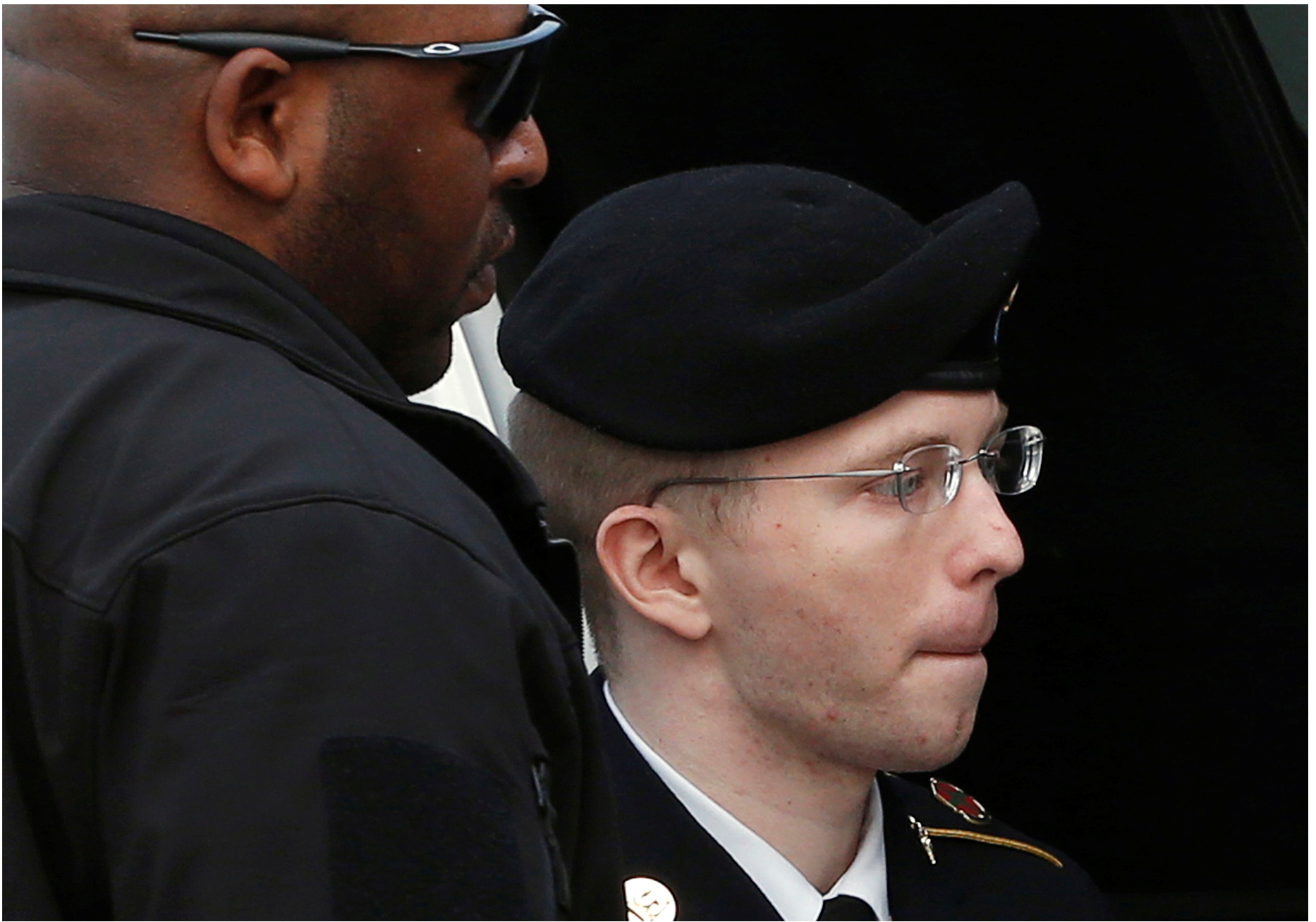FORT MEADE – A military court sentenced US soldier Bradley Manning to 35 years in jail Wednesday for handing secret government documents to WikiLeaks, resulting in America's biggest-ever security breach.
The judgment was initially met with silence in the courtroom, but Manning later said in a statement that he was ready to serve his time, "knowing that sometimes you have to pay a heavy price to live in a free society."
The 25-year-old army private could be freed on parole within a decade and his lawyer David Coombs said he would ask President Barack Obama to pardon him "or at the very least commute his sentence."
The White House sidestepped the appeal, saying only that were it to be received by the president, it "will be considered ... like any other."
Manning supporters protesting outside Fort Meade, the US Army base that hosted his trial, were dismayed at the sentence, despite it being much lower than the 60 years demanded by prosecutors.
But Manning's most high-profile champion, WikiLeaks founder Julian Assange, declared Wednesday's ruling a "significant tactical victory" for his anti-secrecy cause.
He said Obama's administration had intended to intimidate other "people of conscience," such as fugitive US intelligence leaker Edward Snowden, and that this had "spectacularly backfired."
"As a result, there will be a thousand more Bradley Mannings," Assange said in London, where he has been holed up in the Ecuadoran embassy for more than a year to avoid questioning in a Swedish sex crime inquiry.
WikiLeaks recently also lent its support to Snowden, a former US National Security Agency contractor who passed secret documents to Britain's Guardian newspaper and other media outlets.
Snowden, whose US passport has been revoked, was recently granted temporary asylum in Russia, fleeing a US bid to prosecute him.
Coombs said that Manning's hefty sentence would undoubtedly send a "chilling" message to other leakers.
"If he were my client at this point, I would tell him that the current environment is not one that is friendly to whistleblowers," Coombs said, when asked if Snowden should have reasonable cause to fear a return to America.
Manning appeared ashen-faced moments before he heard his fate. The judge, Colonel Denise Lind, delivered her verdict in a less than two-minute statement in which she said the soldier would be demoted to the army's lowest rank.
Manning will serve his sentence in military custody before being dishonorably discharged. He has spent most of his detention at Fort Leavenworth military base in Kansas where he was expected to return Wednesday night.
Under military law, Manning is eligible for parole on completion of one-third of his sentence. His imprisonment will be shortened by a total of 1,294 days for time already served plus a credit he received for unduly harsh detention at the US Marine Corps brig in Quantico, Virginia.
Manning's 35-year sentence will automatically be reviewed in the Army Court of Criminal Appeal.
The pale-faced soldier was convicted of espionage and other crimes last month, having earlier admitted being the source for WikiLeaks of hundreds of thousands of battlefield reports from the US wars in Afghanistan and Iraq and confidential diplomatic cables.
Publication of the documents caused deep embarrassment to the United States and rankled American allies, prompting warnings from government officials that US troops and intelligence sources had been jeopardized.
Army lawyers had pressed for a much longer sentence, arguing that significantly more jail time would send a strong warning to people about the penalties for bringing classified information into the public domain.
Coombs, however, had appealed for leniency, and reiterated Wednesday his determination to see his client freed.
"This fight is not over. My representation of him at a court martial may end but my representation of him in ensuring that he one day, and one day very soon, walks out of Fort Leavenworth has only just begun," Coombs said.
Manning was a junior intelligence analyst at a US base near Baghdad when he handed over the data – about 700,000 documents – to WikiLeaks.
He was arrested in Iraq in 2010 and has since been held in military custody.
The most notorious material that he brought to light was graphic cockpit footage of two US Apache attack helicopters opening fire and killing 12 people in Baghdad in 2007.
Manning, a hero to supporters who regard him as a whistleblower who lifted the lid on America's foreign policy, said he had been horrified by the callous remarks of a pilot who branded the victims "those dead bastards."
Though found guilty of 20 of the 22 offenses leveled against him, Manning was cleared of the most serious charge, that of "aiding the enemy" – in this case, Al-Qaeda.
The American Civil Liberties Union said Wednesday's sentence was sad for Manning but also sad "for all Americans who depend on brave whistleblowers and a free press for a fully informed public debate."




















































